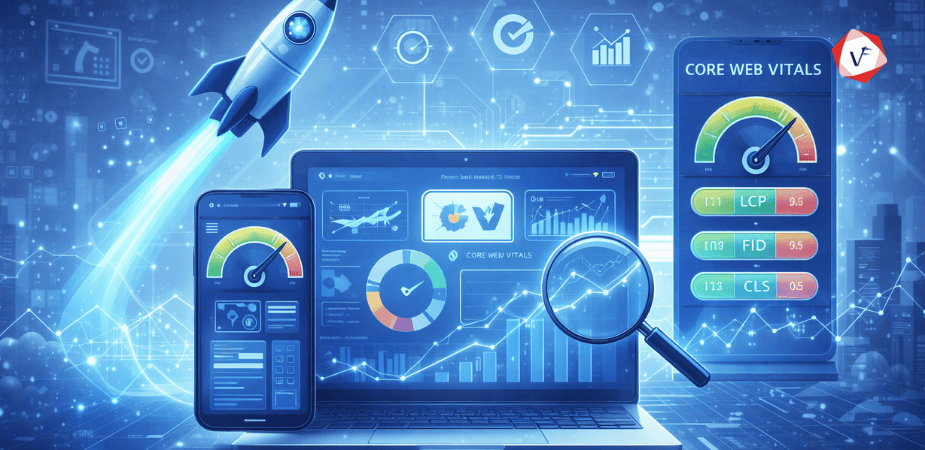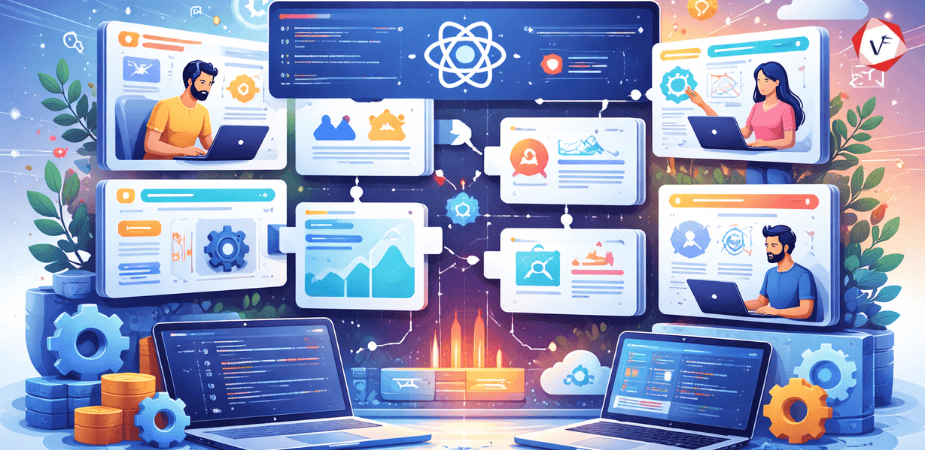- October 17, 2025 12:15 pm
- by Safvana
- October 17, 2025 12:15 pm
- by Ajanth

Artificial Intelligence (AI) is now a tool that many businesses use every day to work faster, smarter, and better. From answering customer questions to managing data and even helping with marketing, AI agents are everywhere. Choosing the right AI agent can be tricky when there are so many to pick from—where do you start?
This comprehensive guide will walk you through everything you need to know—what AI agents are, why they matter, and how to find the one that fits your needs.
An AI agent is a software program that can think and act on its own using artificial intelligence. It can analyze data, make decisions, and carry out tasks without constant human input.
Common examples of AI agents include:
AI agents range from simple tools to highly intelligent systems. Some only follow rules (like autoreplying to emails), while others can learn and improve over time (like tools that personalize your content based on user behavior).
Here are the key reasons why businesses are adopting AI agents:
AI agents can handle repetitive tasks like answering common questions, sending follow-ups, or entering data automatically.
Unlike humans, AI doesn't get tired or distracted. It follows the same steps every time, ensuring consistency.
AI agents don't sleep. They can help customers at night, on weekends, or during holidays without interruption.
One AI tool can sometimes replace several hours of human work, helping companies save money and allocate resources more efficiently.
AI agents respond faster and can provide instant help, keeping customers happy and reducing wait times significantly.
Let's break down how you can pick the right AI agent for your business needs.
Before you start looking at tools, ask yourself these critical questions:
For example:
Each AI agent has its own use case. Let's explore the main types available:
They talk to customers, answer questions, and solve basic problems. Examples: ChatGPT-style bots or customer service bots like Zendesk or Intercom.
They manage schedules, emails, and tasks. Examples: Google Assistant, Siri, or AI-powered scheduling tools like Clara or x.ai.
These tools help find leads, send outreach emails, and track deals. Examples: Drift, HubSpot AI.
They write content, create ads, manage social media, or analyze customer behavior. Examples: Jasper, Copy.ai, or ChatGPT for content generation.
These tools help spot trends, predict future sales, or manage large datasets. Examples: Tableau with AI, Microsoft Power BI with Copilot.
AI that helps with ticketing, feedback, and customer satisfaction tracking. Examples: Freshdesk, Zoho Desk with AI.
Once you know what kind of agent you need, compare tools by asking:
Key Tip: Avoid tools with features you don't need. More isn't always better—focus on functionality that solves your specific problems.
AI agents come in all price ranges. Some are free, some cost thousands per month.
Make sure you:
AI agents often deal with private data. Always check:
Important: If you're in healthcare, finance, or law, always go for enterprise-grade tools that offer data protection and legal compliance.
Many AI tools come with a free trial—take advantage of it.
This will help you avoid wasting time or money on the wrong tool.
Even the best AI agent won't help if your team doesn't use it.
Remember: AI is here to help people, not replace them.
Once the AI agent is in use, track its performance:
Most AI tools come with dashboards or reports. Use them to make informed decisions.
If something isn't working, try:
Here are key pitfalls to watch out for when choosing your AI agent:
Use AI for real needs—not just to follow a trend. Know what problem you're solving.
They're no good if your team can't figure them out. Simpler is better.
Make sure the AI agent works with your current systems and tools.
A good tool comes with good support—don't overlook this critical factor.
Never compromise on privacy. Be aware of where your data goes and who can access it.
Problem: Too many calls asking for hours, prices, and custom cake orders.
Solution: Installed a chatbot on their website. It answered 90% of questions automatically and reduced phone calls by half.
Problem: Writing social media posts and blog ideas took hours every week.
Solution: Used Jasper and ChatGPT to generate drafts. Team just edited and posted—saving 8+ hours weekly.
Problem: Missed appointments and poor follow-ups.
Solution: Used an AI scheduling assistant to send appointment reminders and confirmations. No more missed slots.
Choosing the right AI agent isn't about finding the most advanced or expensive one. It's about finding the one that solves your problems, fits your budget, and works well with your team.
Begin by clearly understanding what your business actually needs. Choose an AI tool that aligns with those needs, not just in terms of features, but also in ease of use, customer support, and cost. The wrong one can just add more stress.
Start small, test thoroughly, and scale gradually. The right AI agent can transform how your business operates, but only if it's the right fit for your unique situation.
Guaranteed Response within One Business Day!
What is Infrastructure as Code (IaC)?

Front-End Performance in 2026: What Core Web Vitals Actually Mean for Your Site

What is FinOps?

Micro-Frontends: Breaking Down Monolithic React Applications
.png)
Zero-Trust Security Models for SaaS: What You Need to Know